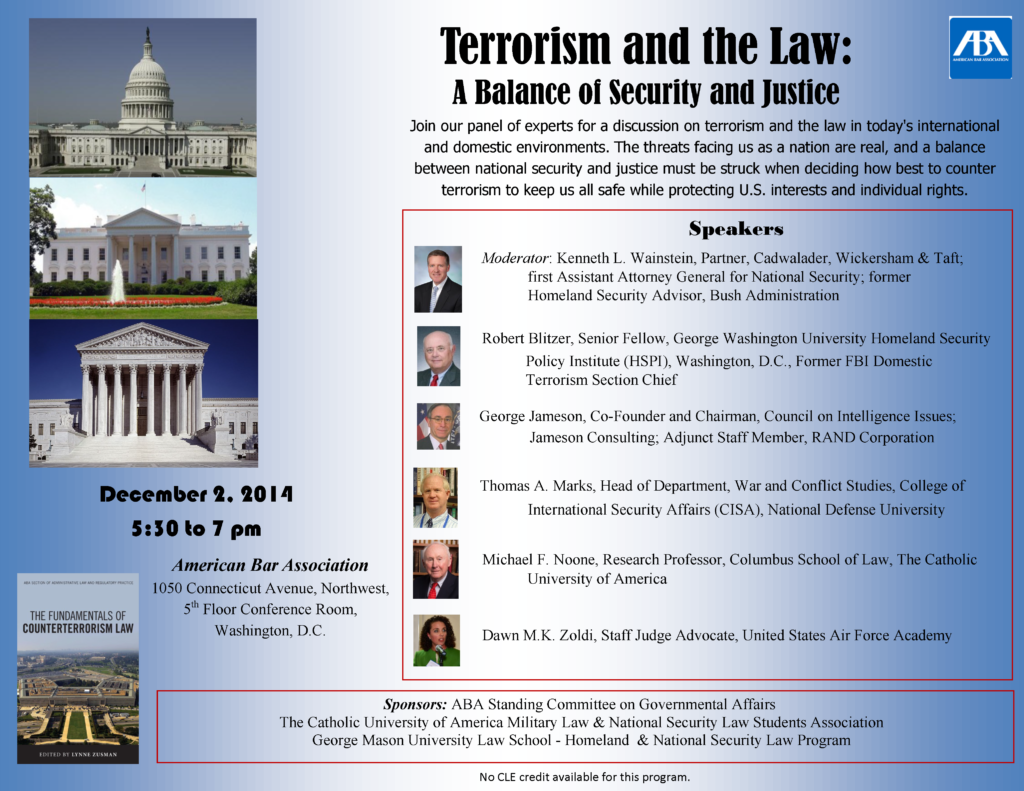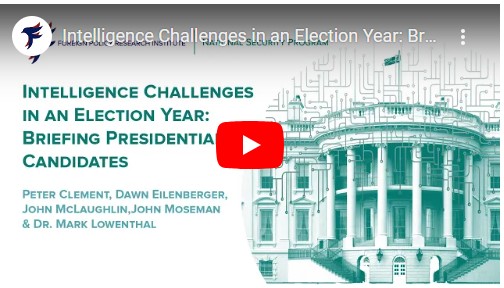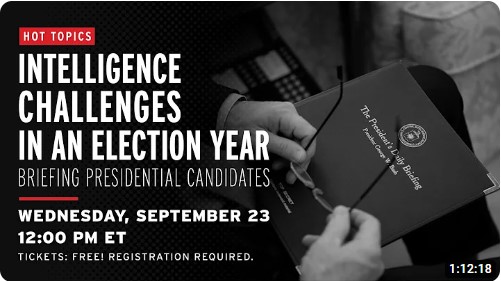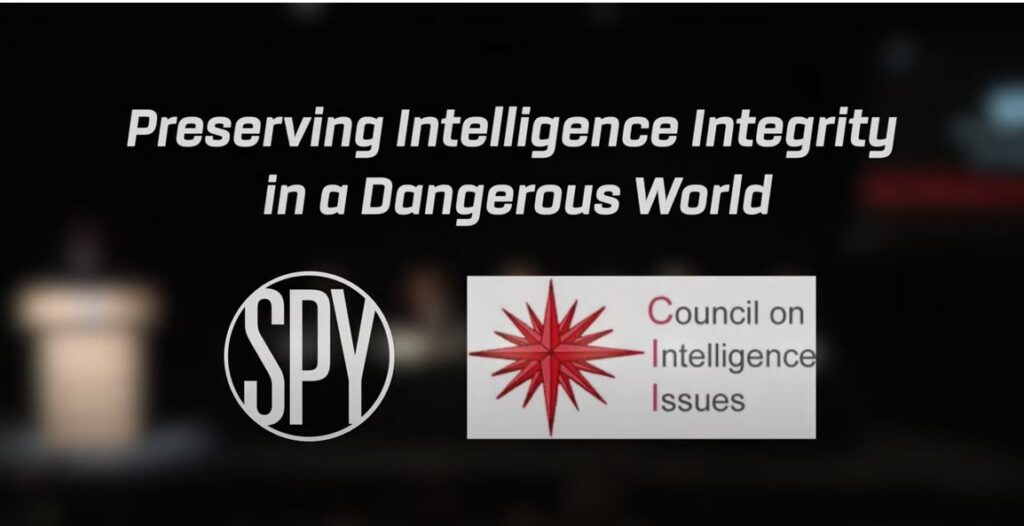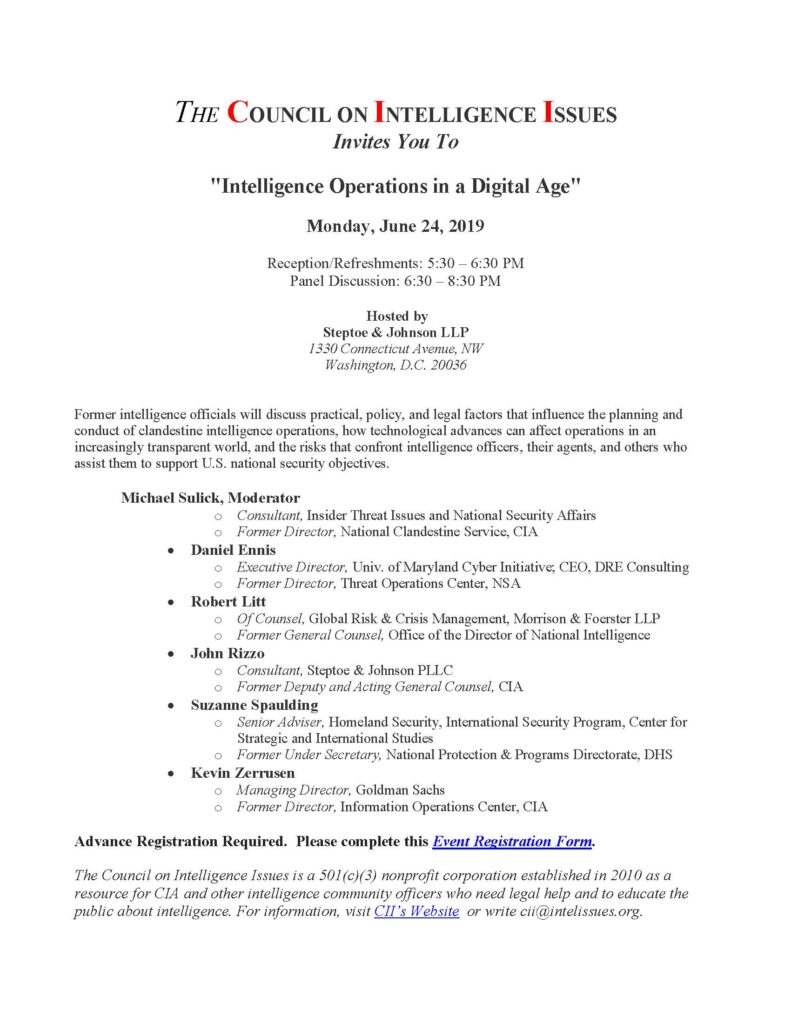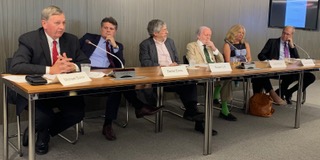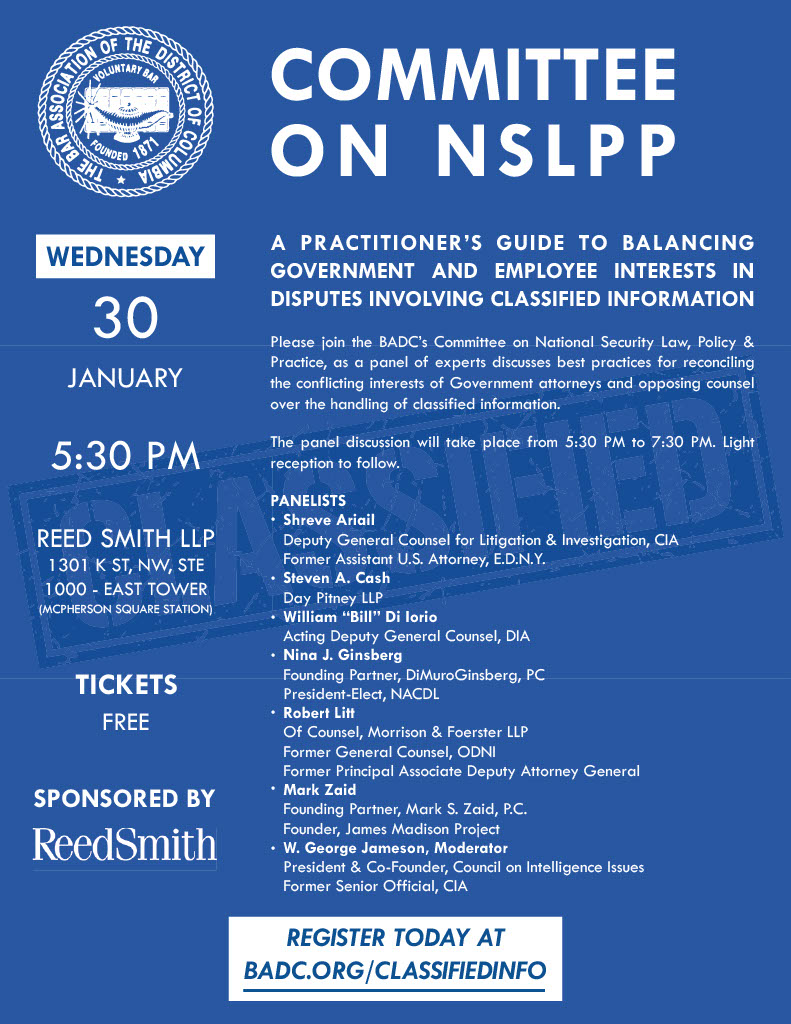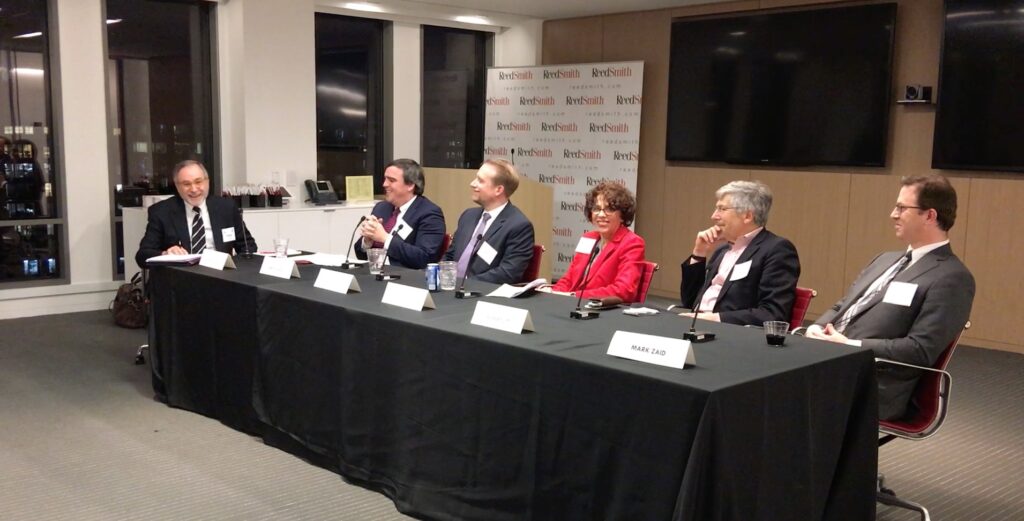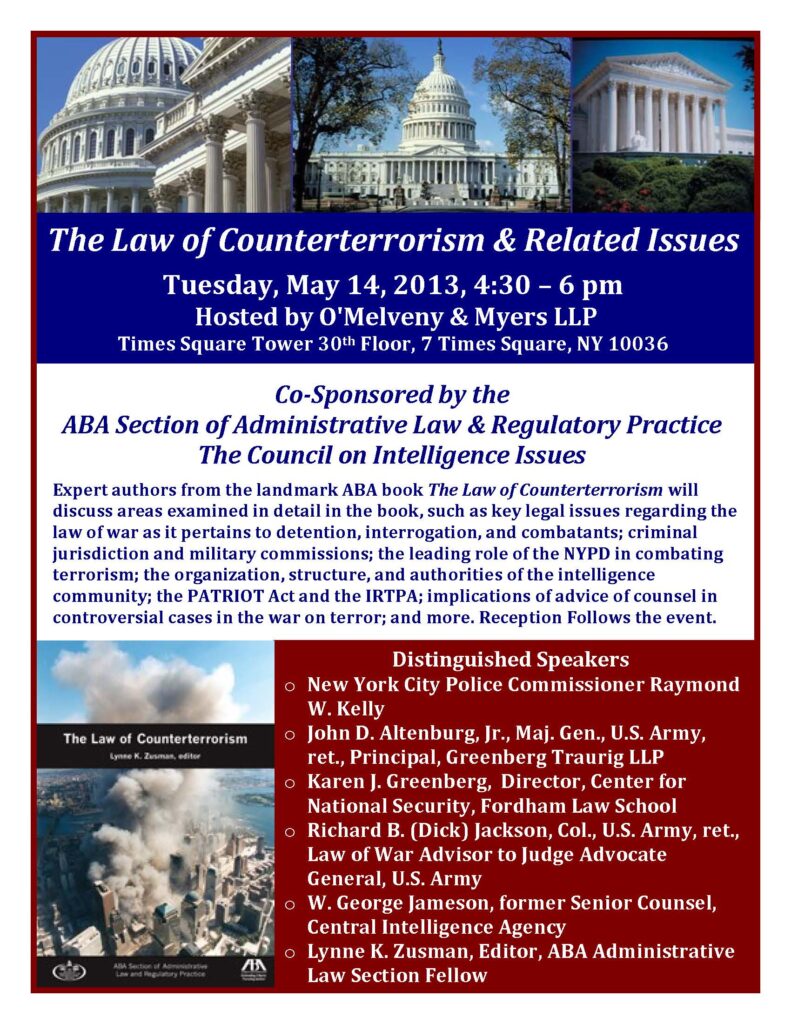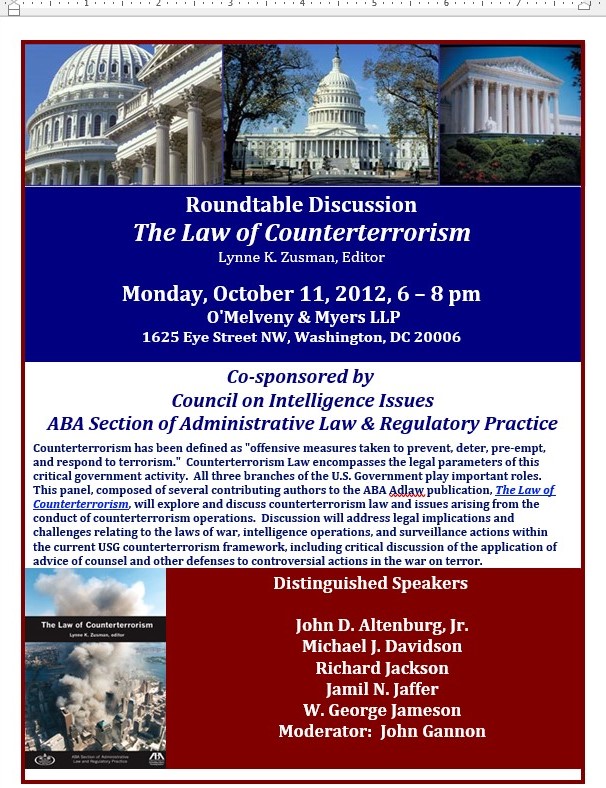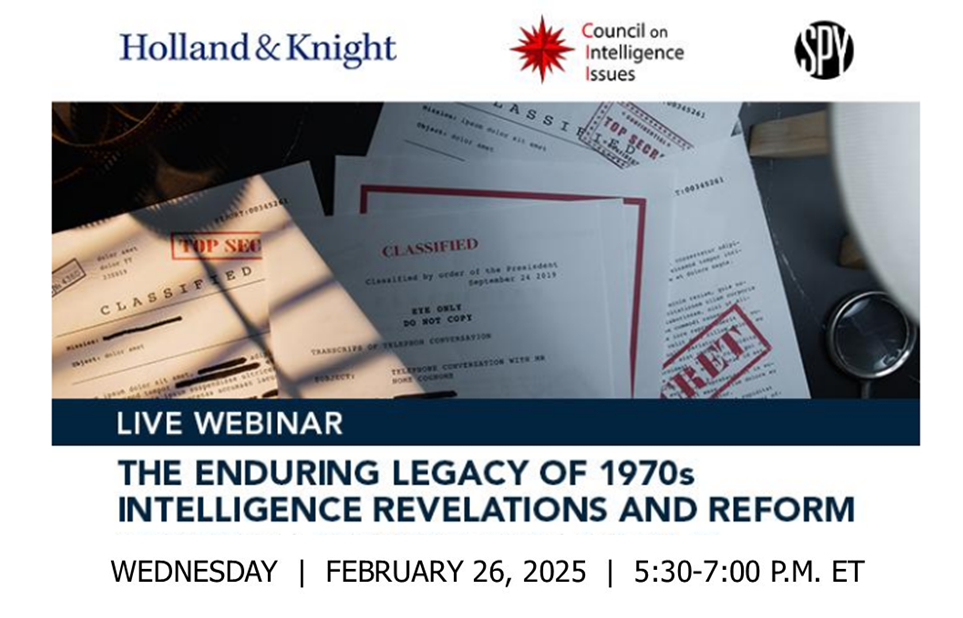
In the midst of the Watergate scandal in 1973, Director of Central Intelligence James Schlesinger asked current and former CIA employees to report any CIA activities that might have violated the CIA’s charter. The resulting compilation, nicknamed the Family Jewels, leaked to the public in December 1974. Although the report focused on the CIA, the leak set in motion a series of broader investigations – the Rockefeller Commission established by the president and the subsequent congressional Church and Pike committees.
The public revelations about covert action operations abroad, allegations of assassination plots, domestic spying and more captured the attention of the world. Together, the investigations and recommendations altered public perceptions of U.S. intelligence writ large, led to major restructuring of both executive and legislative branch oversight of intelligence, and resulted in changes to the way intelligence agencies conducted their operations.
Presented by the Council on Intelligence Issues (CII) and hosted by Holland & Knight and the International Spy Museum, this panel discussion is the first in a series of webinar and in-person sessions that will focus on significant changes that resulted from the leak and the subsequent investigations. Our February 26 webinar will include former Church Committee staffers (David Aaron and Greg Treverton) and two intelligence officers who represented the CIA before the committee (Jack Devine and Jim Taylor). Moderated by historian and former intelligence officer Mark Lowenthal, panelists will discuss their roles and their insights about the investigations and their legacy, including:
- What were some of the most significant operational, policy and legal changes?
- What were the challenges in addressing both real need for change and perceptions of need for change?
- How did U.S. intelligence adapt in its conduct of operations, relations within the executive branch, increased oversight and calls for greater public transparency?
- How, 50 years later, do they assess these events and their impact, whether positive or negative, and lessons learned?
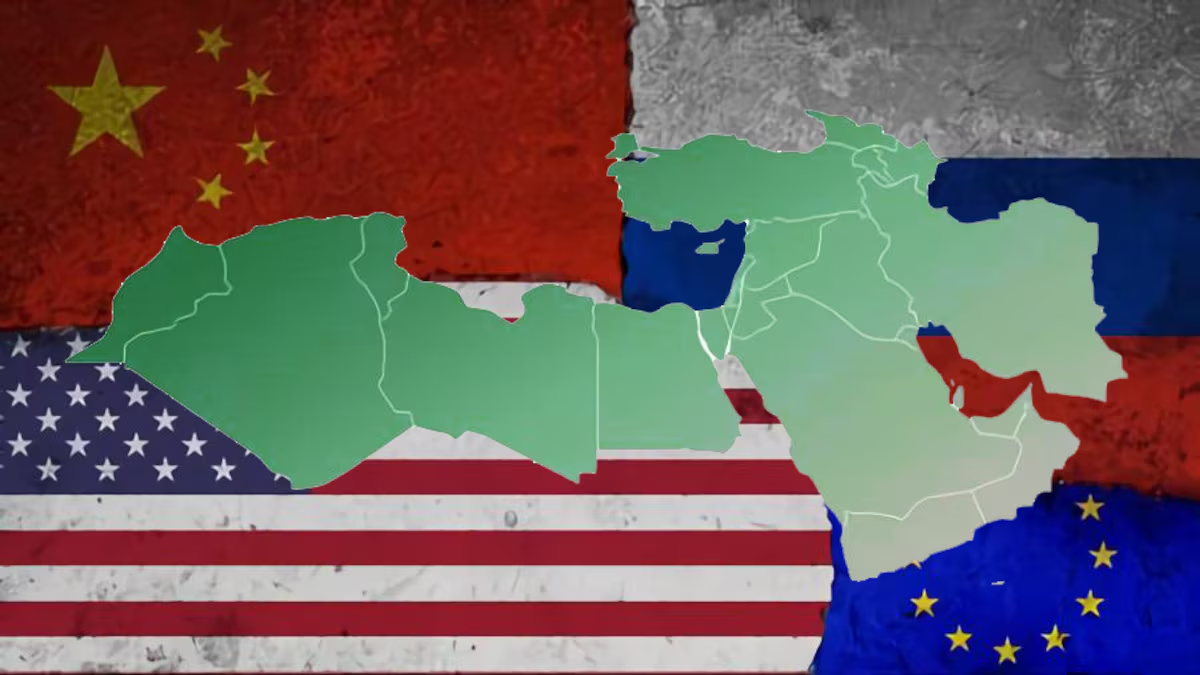
September 26, 2024
Great Powers Competition and U.S. Intelligence Challenges
Great Powers Competition and U.S. Intelligence Challenges
September 26, 2024
The past 10 years have witnessed the Russian invasion of Ukraine, increasing use of technology and social media by Russia and other nations to direct propaganda at the U.S. and Western Europe, Chinese aggressiveness to control the South Seas and its emergence and standing as an economic power, and explosive conflict in the Middle East. These and other international events and resulting alliances have led some commentators to suggest a re-emergence of a “Great Power Competition” with persistent adversaries and intelligence “hard target” priorities Russia and China.
Our distinguished panel of retired senior intelligence officers, moderated by intelligence historian and leading practitioner Mark Lowenthal, will include: former CIA Deputy and Acting Director John McLaughlin, Senior Agency Operations officer and author Rolf Mowatt-Larssen, and China intelligence and academic expert Dennis Wilder will explore how CIA and the intelligence community have adjusted to the requirements of policymakers and others to understand and counter threats from those nations while also continuing to meet the demands of other national security priorities:
- How have CIA and the IC adapted their focus from a Cold War to a War on Terror and now to what some have called a New Cold War?
- What’s different or the same about the challenges today, such as propaganda efforts, and the U.S. ability to combat them?
- What are lessons learned from past transitions and shifts in priorities?
- How well-situated is U.S. intelligence today and into the future to handle new and continuing priorities in light of societal changes, workforce expectations, the motivations and impact of foreign leaders, and other challenges?
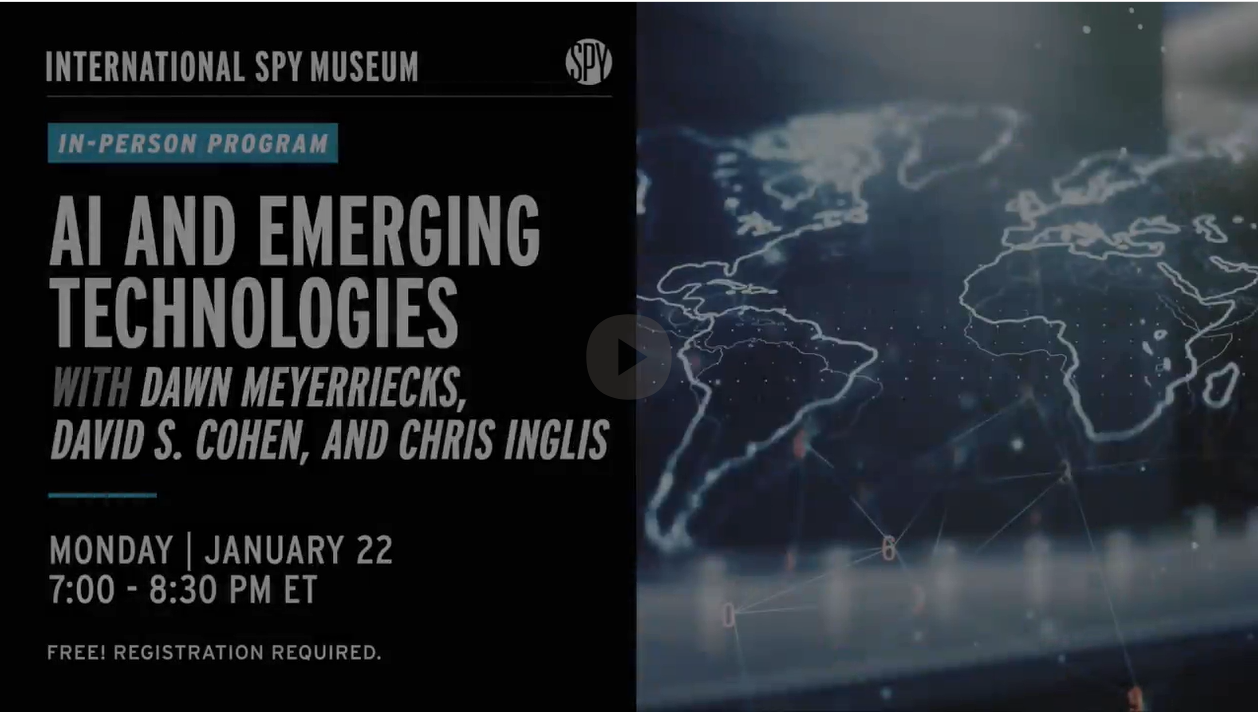
January 22, 2024
“AI and Emerging Technologies”
presented in partnership with the International Spy Museum

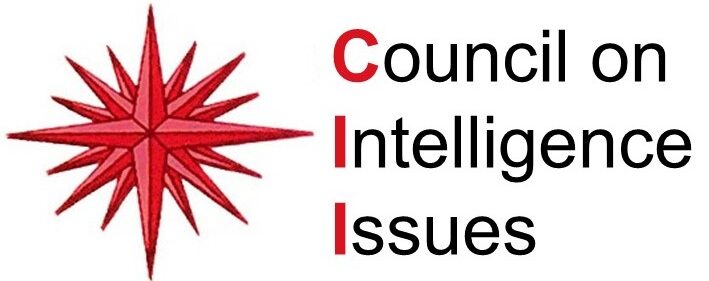
“Artificial Intelligence and Emerging Technologies: Intelligence
Opportunities & Challenges”
Recorded Live on January 22, 2024 – Watch Here
Is Artificial Intelligence the end of intelligence operations as we know them, or an exciting new way of collecting and analyzing intelligence? What is AI? View this timely discussion with experts currently grappling with new technologies and their operational and policy implications for national security. The speakers explored how the U.S. government has promoted AI safety and how it addresses security considerations resulting from this advanced tech. They addressed how the intelligence community stays on top of emerging technologies and the implications of ongoing breakthroughs. They also recognized the valuable interplay between the public and private sectors.
Featuring:
David S. Cohen, the Deputy Director, Central Intelligence Agency (CIA); and Chris Inglis, a former Deputy Director, National Security Agency (NSA) who later served as the first National Cyber Director.
David Cohen
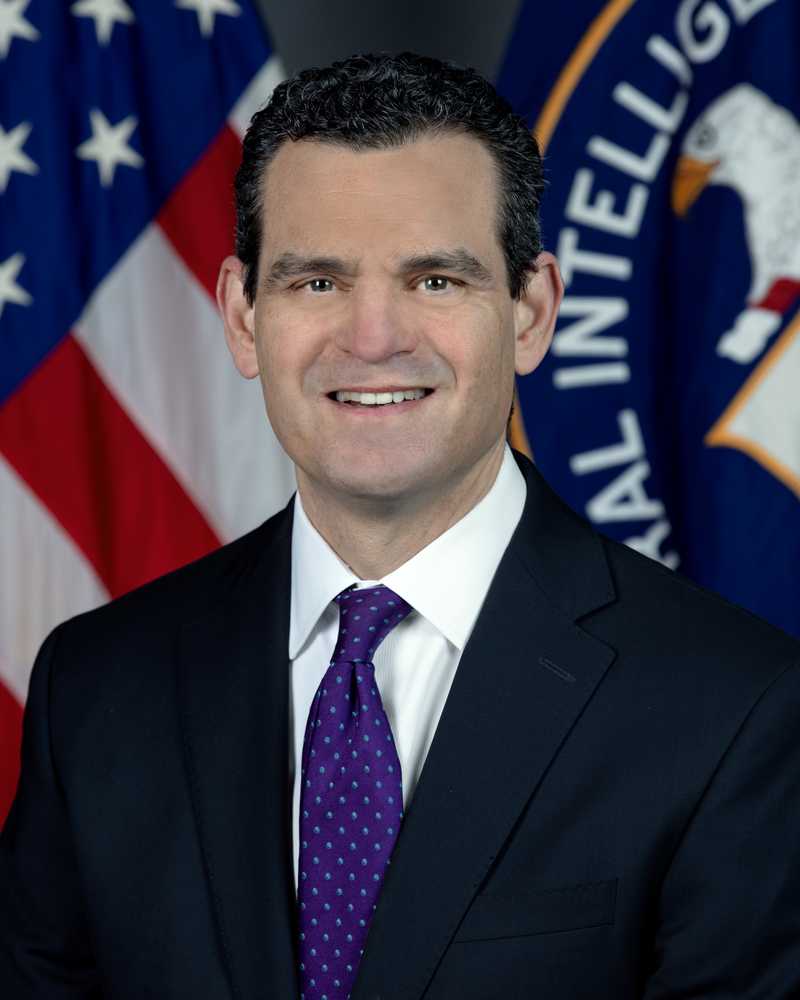
Chris Inglis
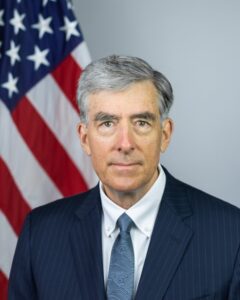
Moderators:
Joining the conversation were co-moderators were two CII board members: Dawn Meyerriecks, former Central Intelligence Agency (CIA) Director for Science and Technology, and Andrew Makridis, former Chief Operating Officer, CIA, and co-host of the “Intelligence Matters: Relaunch” podcast.
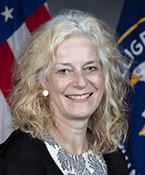

Co-sponsored by the Council on Intelligence Issues and The International Spy Museum, in collaboration with “Intelligence Matters: Relaunch.”
Videos of this event may be found at the CII’s website (https://intelissues.org/pastevents/) and the Spy Museum’s Museum’s site (spymuseum.org). Also, coming soon: Hear the audio plus commentary at “Intelligence Matters: Relaunch” whereever you get your podcasts or at https://bgsdc.com/podcast/.
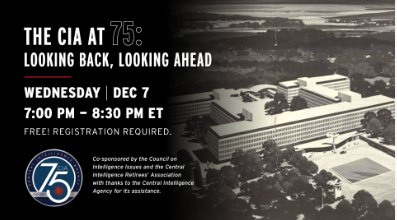
December 7, 2022
“CIA at 75: Looking Back, Looking Ahead”


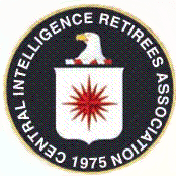
The Spy Museum, Council on Intelligence Issues, and the Central Intelligence Retirees’ Association marked the CIA’s 75th anniversary with an evening focused on the Agency’s history, a discussion of operational, analytic, technological, and other challenges that illustrate CIA’s mission and unique role as a national intelligence agency, and a look ahead to the challenges for the future.
David Robarge, CIA Chief Historian, set the stage with a brief look at CIA’s history, agility at adapting to the world it, and some challenges it has faced.
Mark Lowenthal, former Assistant Director of Central Intelligence for Analysis and Production, moderated a panel of CIA experts sharing their diverse firsthand experiences to illustrate how CIA and generations of its intelligence professionals have met some of the challenges and risks they faced around the globe. The panel includes:
· James Lawler, former Directorate of Operations Officer, counterproliferation expert;
· Andrew Makridis, former Chief Operating Officer, analyst and presidential briefer;
· Dawn Meyerriecks, former Deputy Director for Science and Technology; and
· William D. Murray, former Directorate of Operations Officer, Chief of Station.
Concluding the program, John McLaughlin, former Deputy and Acting Director of Central Intelligence, discussed some of the challenges CIA faces and the role it will play in continuing to provide all-source intelligence analysis and operational support to enable policymakers to anticipate and address traditional and emerging threats to US and global security.
Co-Sponsored by:
The Council on Intelligence Issues (CII) is a nonprofit organization established as a resource for CIA and other intelligence community officers who need information about legal assistance and to educate the public about intelligence. Visit CII’s website at www.intelissues.com or write cii@intelissues.org.
The International Spy Museum is an independent non-profit museum which documents the tradecraft, history, and contemporary role of espionage. It holds the largest collection of international espionage artifacts on public display. For information, visit spymuseum.orgor write info@spymuseum.org.
The Central Intelligence Retirees’ Association (CIRA) is a non-profit social organization that also offers scholarships to family members of CIA officers. Membership is limited to CIA retirees as well as current and former officers employed by the Agency for at least 10 years. Visit www.cira.org for information.
With much thanks to the Central Intelligence Agency for its assistance.
Participants:
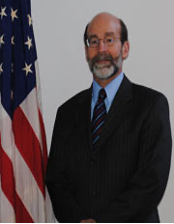
David Robarge

Mark Lowenthal
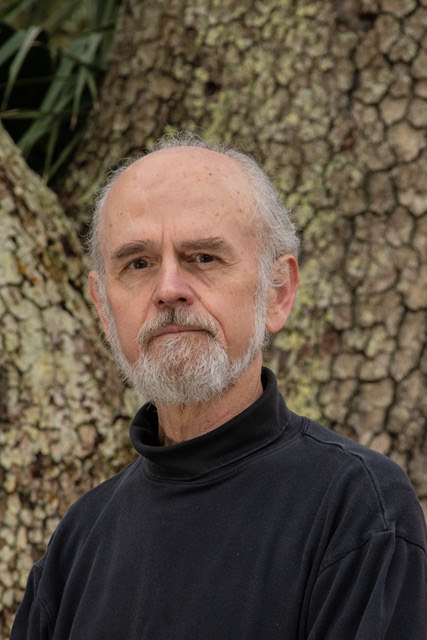
Jim Lawler

Andrew Makridis
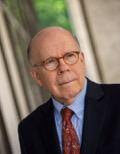
John McLaughlin
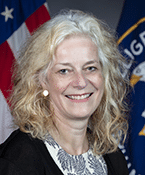
Dawn Meyerriecks

William Murray
May 12, 2021
“Whistleblowing in the Intelligence Community Legal and Practical Challenges”
presented in partnership with the ABA Standing Committee on Law and National Security
 Featuring Moderator Dawn Eilenberger (Former Deputy Director of National Intelligence, Former Assistant DNI for Policy & Strategy, Office of the DNI); Michael Atkinson (Partner, Crowell & Moring LLP; co-lead of the National Security practice and former ODNI Inspector General); Joel Brenner (Senior Research Fellow, MIT Center for IInternational Studies and former NSA Inspector General); Jason Klitenic (Partner, Holland & Knight, Head of National Security, Defense and Intelligence Team and former General Counsel, ODNI); and Mark Zaid (Managing Partner, Mark S. Zaid, PC; Founder, James Madison Project and Co-Founder, Whistleblower Aid).
Featuring Moderator Dawn Eilenberger (Former Deputy Director of National Intelligence, Former Assistant DNI for Policy & Strategy, Office of the DNI); Michael Atkinson (Partner, Crowell & Moring LLP; co-lead of the National Security practice and former ODNI Inspector General); Joel Brenner (Senior Research Fellow, MIT Center for IInternational Studies and former NSA Inspector General); Jason Klitenic (Partner, Holland & Knight, Head of National Security, Defense and Intelligence Team and former General Counsel, ODNI); and Mark Zaid (Managing Partner, Mark S. Zaid, PC; Founder, James Madison Project and Co-Founder, Whistleblower Aid).
January 27, 2021
“The Billion Dollar Spy: Adolf Tolkachev”
What is a good spy worth? In the case of this one, an estimate by the US Air Force specialist who used the intelligence gained from this one source to terminate or direct research, “somewhere in the neighborhood of $2 billion…” That was before the source, Adolf Tolkachev, delivered another 179 rolls of film with thousands of pages of Soviet documents.
Spy stories, real spy stories, are never simple, and they frequently have tragic endings. They are also often hampered by internal governmental controls that make the operation more difficult for the operations personnel. Fighting through these obstacles is often as difficult as running the operation itself.
Meet one man who made this fight and helped America gain clear advantages in the future of air warfare and the author who brought the operation to light many years later:
Burton Gerber, a legendary CIA officer and senior leader and Moscow Chief during much of the operation.
David E. Hoffman, Washington Post journalist and Pulitzer Prize winning author.
William D. “Bill” Murray, a retired senior operations officer of the CIA and co-founder of the Council on Intelligence Issues, will moderate this discussion.
John Gannon, CII’s Chairman, will introduce the participants. Please join us for this free online presentation that will bring you deeply into one of the most successful and important U.S. espionage operations of the late 20th century.
October 23, 2020
“Intelligence Challenges in an Election Year: Briefing Presidential Candidates”
The Foreign Policy Research Institute and the Council on Intelligence Issues present this exciting and timely discussion.
Panelists:
Peter Clement, Chief of CIA’s Presidential Transition Team (2008); PDB daily briefer for Vice-President Cheney, NSC Adviser Rice, and Deputy NSC Adviser Hadley (2003-2004);
Dawn Eilenberger, former Deputy Director of National Intelligence and Assistant DNI for Policy & Strategy, Office of the DNI, she managed DNI’s intelligence community’s Presidential transition effort (2016);
John McLaughlin, former Deputy Director and Acting Director of Central Intelligence (2000-2004), he provided briefings to candidates, presidents-elect, and to sitting and former presidents; and
John Moseman, previously Chief of Staff, Director of Central Intelligence; CIA Director of Congressional Affairs, served as Senior Advisor to the DNI’s Transition Teams for the 2008, 2012 and 2016 elections.
Moderator: Dr. Mark Lowenthal, former Assistant Director of Intelligence (DCI) for Analysis and Production and author of Intelligence: From Secrets to Policy.
September 23, 2020
“Intelligence Challenges in an Election Year: Briefing Presidential Candidates”
Co-sponsored by the Council on Intelligence Issues
Much has been reported about intelligence briefings for sitting presidents, how different presidents receive these briefings, known as the President’s Daily Brief (PDB), and how presidents deal with the intelligence they receive. Even before inauguration, the intelligence community provides classified intelligence briefings to candidates during the election campaign and to a president-elect during the transition. These briefings often are the first step in an intelligence community’s “getting to know the President.” Bringing classified intelligence to candidates who are often unfamiliar with how foreign intelligence is collected, analyzed, and protected presents many challenges. Join us for a discussion of this practice authorized by every President dating back to Harry Truman in 1952.
Our distinguished panel includes: Peter Clement, Chief of CIA’s Presidential Transition Team (2008) and PDB daily briefer for Vice-President Cheney, NSC Adviser Rice, and Deputy NSC Adviser Hadley (2003-2004); Dawn R. Eilenberger, former Deputy Director of National Intelligence and Assistant DNI for Policy & Strategy, Office of the DNI, she managed DNI’s intelligence community’s Presidential transition effort (2016); John McLaughlin, Former Deputy Director and Acting Director of Central Intelligence (2000-2004), he provided briefings to candidates, presidents-elect, and to sitting and former presidents; and John Moseman, previously Chief of Staff, Director of Central Intelligence, CIA Director of Congressional Affairs, and Senior Advisor to the DNI’s Transition Teams for the 2008, 2012, and 2016 elections.
Former Assistant DCI for Analysis and Production and author of Intelligence: From Secrets to Policy, Dr. Mark M. Lowenthal, will moderate the discussion which will share insights on: How does the intelligence community prepare for these briefings? How have these briefings changed or differed over time? Do candidates get “the good stuff”? And more.
December 10, 2019
“Preserving Intelligence Integrity in a Dangerous World”

Join moderator John Gannon, former Chairman, National Intelligence Council and panelists: Peter Clement, former Deputy Assistant Director of CIA for Europe and Eurasia; Robert Grenier, Former Director, CIA Counter Terrorism Center; Chris Kojm, former Chairman, National Intelligence Council; Bill Murray, former CIA Station Chief, Senior Manager and Operations Officer (Europe, Middle East, Balkans, South Asia); and the Honorable Caryn Wagner, former Undersecretary for Intelligence & Analysis, Department of Homeland Security, as they highlight factors that enhance or undermine the credibility, effectiveness, and impact of intelligence for national security decision-makers.
PRIOR EVENTS
Black Ops: Deception, Influence and Propaganda
November 15, 2015
William Murray, Presenter
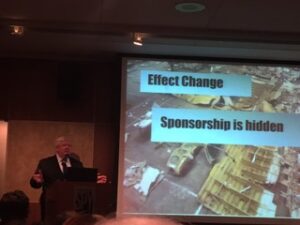
Co-Sponsored by ABA Standing Committee on Governmental Affairs and Council on Intelligence Issues
